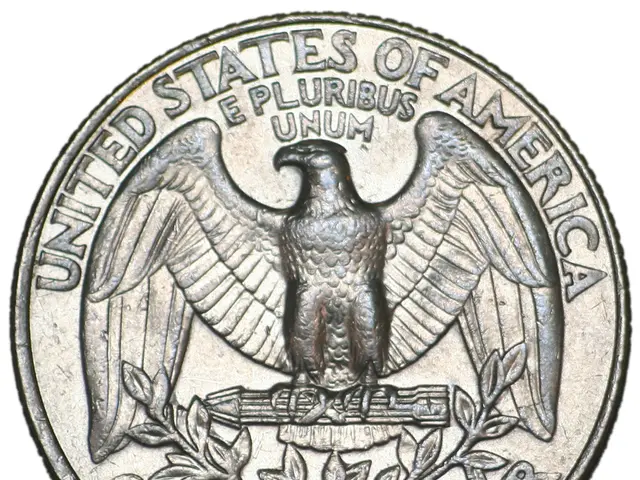Clever Ways to Lighten Your Inheritance Tax Burden: A Guide for Brits
Utilize a potent estate planning strategy available to British citizens to potentially reduce their inheritance tax liability by 10%.
Brits, get ready to take advantage of a lesser-known inheritance tax (IHT) rule that could slash your IHT bill by a whopping 10%. As many families express concern about this financial hurdle, estate planning professionals are reporting a surge in requests for advice. Here's how you can reduce your IHTRate with minimal effort:
The trick to lowering your IHT is to leave some of your estate to a charity in your will. The gift itself is IHT-exempt, but if at least 10% of your net estate is given to charity, your loved ones will typically benefit from a reduced IHT rate of 36%, amounting to a 10% savings compared to the regular IHT rate of 40%.
Take, for example, a client with an estate valued at £2.5 million and a projected IHT bill of £460,000. By gifting 10% of their net estate (£225,000) to three registered charities through their will, they lowered their IHT rate to 36%, saving approximately £60,000 in tax while supporting causes they deeply cared about. Their IHT bill was reduced to £400,000.
Curious about shrinking your IHT bill or even avoiding it completely? Check out our separate guides on the topic.
Britain's Wealthy Ponder Charitable Legacies
Changes to IHT rules, specifically the freezing of the nil rate band and the inclusion of pensions as part of the taxable estate from April 2027, have triggered more people to consider charitable legacies as part of their estate planning.
An impressive 92% of will writers, solicitors, and financial advisers surveyed by Remember a Charity believe estate and tax planning will increase over the next two years as new IHT policies are implemented. Over half of them are already experiencing a surge in requests for advice, and 65% say that the charitable tax incentives will become even more important to their client base.
According to Tanya Watson, chartered tax adviser and senior director at Alvarez & Marsal Tax LLP, these changes have prompted a re-evaluation of estate planning strategies, especially among clients who might not have been previously affected. She added that charitable giving can be a highly effective planning tool and provides a timely reason for advisers to revisit legacy plans with clients who may not have considered this route before.
Setting Up a Charitable Legacy: A Step-by-Step Guide
The most common method of gifting to charity is through a will, which permits individuals to leave a specific gift or a percentage of their estate to a named charity, thus reducing the IHT rate from 40% to 36% if at least 10% of the net estate is gifted.
For larger or more complex estates, consider a charitable trust. These allow donors to allocate funds over time, often according to specific aims or governance preferences and offer flexibility – albeit at the cost of additional planning and administration.
The financial advisor will initially calculate the client's IHT liability based on current asset values and allowances. From there, they help structure a suitable balance between what goes to family and what might be given to charity, optimizing the estate's value and the legacy it creates. Some charities offer assistance with will writing for those who include a legacy gift in their plan.
Choosing a Charitable Legacy: Key Considerations
Choosing a charitable legacy is a deeply personal decision. Here are a few essential factors to consider during the process:
- Connection: Does the cause resonate with your life or values? Many clients find their connection in health conditions, local community, or areas of personal interest.
- Credibility: Ensure the charity is well-managed and transparent with funds. Clients seek confidence that their gift won’t be lost to inefficiencies or mismanagement.
- Continuity: Will the charity still exist or be relevant when the estate is settled? Sometimes, it's wise to name two or more organizations to prevent the gift from failing if one dissolves.
Always consult with a financial planner and solicitor to ensure your will is structured properly, and to understand the impact on your estate and beneficiaries. Additionally, verify that the charity is recognized by the Charity Commission to ensure your donation achieves your intended impact. For smaller charities with lower overheads, there's the opportunity to make an immediate, significant impact.
- In light of changes in inheritance tax rules, such as the freezing of the nil rate band and the inclusion of pensions, more Brits are considering charitable legacies as part of their wealth-management and personal-finance strategies.
- By setting up a charitable trust or leaving a specific gift or percentage of their estate to a named charity in their will, wealthy individuals can potentially reduce their IHT rate from 40% to 36%, while also supporting causes they deeply care about.
- For those considering a charitable legacy, key factors to consider include connection with the cause, the charity's credibility and continuity, and seeking advice from a financial planner and solicitor to ensure proper implementation and understanding of the impact on their estate and beneficiaries.






